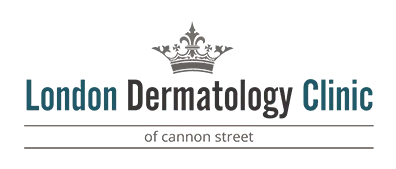
The Relationship Between Diet and Acne: Exploring the Evidence and Recommendations
Diet plays a pivotal role in determining an individual’s overall health and longevity. While a balanced diet is associated with a reduced risk of serious health issues, recent research delves into the intricate connection between diet and skin conditions, particularly acne.
The Potential Link Between Diet and Acne
Despite ongoing studies, there is mounting evidence supporting the idea that diet may contribute to the development of acne. Dermatologists acknowledge the need for more comprehensive research to establish conclusive connections between diet and acne, although anecdotal evidence suggests a potential correlation.
Specific Foods and Dietary Patterns
Certain foods, such as high-glycemic carbohydrates and dairy products, are implicated in acne breakouts. Rapid spikes in blood sugar levels, often associated with high-glycemic foods, may stimulate the production of insulin-like growth factor 1 (IGF-1). Elevated levels of IGF-1 can lead to increased sebum production, inflammation, and the development of acne.
The Western Diet and Acne
The ‘Western diet,’ characterized by high levels of dairy, saturated fats, trans fats, and high-glycemic carbohydrates, has been linked to acne development. Studies comparing Westernized and non-Westernized societies reveal lower acne rates in populations adhering to traditional diets rich in fruits, vegetables, and fish.
Vitamins and Minerals Impact
Research examining the levels of vitamins A, E, and zinc in acne patients’ plasma indicates a potential correlation between higher levels of these substances and less severe acne. Foods rich in these essential nutrients, such as sweet potatoes, almonds, and oysters, may play a role in acne management.
Omega-3 Fatty Acids and Gamma-Linolenic Acid
Essential fatty acids like omega-3 and gamma-linolenic acid (GLA) may contribute to acne prevention. These acids, found in fish and plant-based oils, demonstrate anti-inflammatory effects on the skin, potentially reducing both inflammatory and non-inflammatory acne lesions.
Milk and Acne
The belief that milk causes acne has been explored in various studies, with some suggesting a connection between dairy intake and acne. Hormones present in milk, particularly growth hormones and anabolic steroids, along with the impact of carbohydrate content, may contribute to acne and inflammation.
While there is growing evidence supporting the role of diet in acne, further research is necessary. Maintaining a balanced diet is vital for overall health. For personalized advice, consult a dermatologist, such as at the London Dermatology Clinic, as dietary changes may not significantly impact moderate to severe acne cases, and incorrect advice can delay proper treatment.
FAQ
Are there specific dietary recommendations for individuals with acne-prone skin?
While the text emphasizes the importance of a balanced diet, personalized dietary advice is crucial. For tailored recommendations, considering factors like individual skin types and severity of acne, it’s best to consult a dermatologist, such as those available at the London Dermatology Clinic. They can provide specialized guidance to address unique skin concerns.
Can specific vitamins or minerals worsen acne, and should they be avoided?
The text briefly mentions vitamins A, E, and zinc positively influencing acne severity. However, it’s important to consult a dermatologist for personalized guidance, as excesses or deficiencies of certain nutrients may impact skin health differently for each individual.
How quickly can dietary changes affect acne, and are there immediate solutions?
The timeline for dietary changes to impact acne varies. While maintaining a balanced diet is essential, individuals seeking quick solutions should be aware that significant improvements may take time. Consultation with a dermatologist at the London Dermatology Clinic can provide a realistic timeframe and effective strategies.
Is there a connection between lifestyle factors, such as stress, and acne development?
The text highlights the role of diet, but lifestyle factors like stress can also influence acne. Comprehensive acne management may involve addressing various aspects. Dermatologists, like those at the London Dermatology Clinic, can provide holistic advice to manage both dietary and lifestyle factors impacting skin health.
Can hormonal fluctuations be a primary cause of acne, and how does diet influence hormones?
Hormonal factors contribute to acne development. The text mentions insulin-like growth factor 1 (IGF-1), but for a deeper understanding of hormonal influences and their interaction with diet, individuals are encouraged to seek consultation with dermatologists, such as those at the London Dermatology Clinic, who can offer specialized insights.


